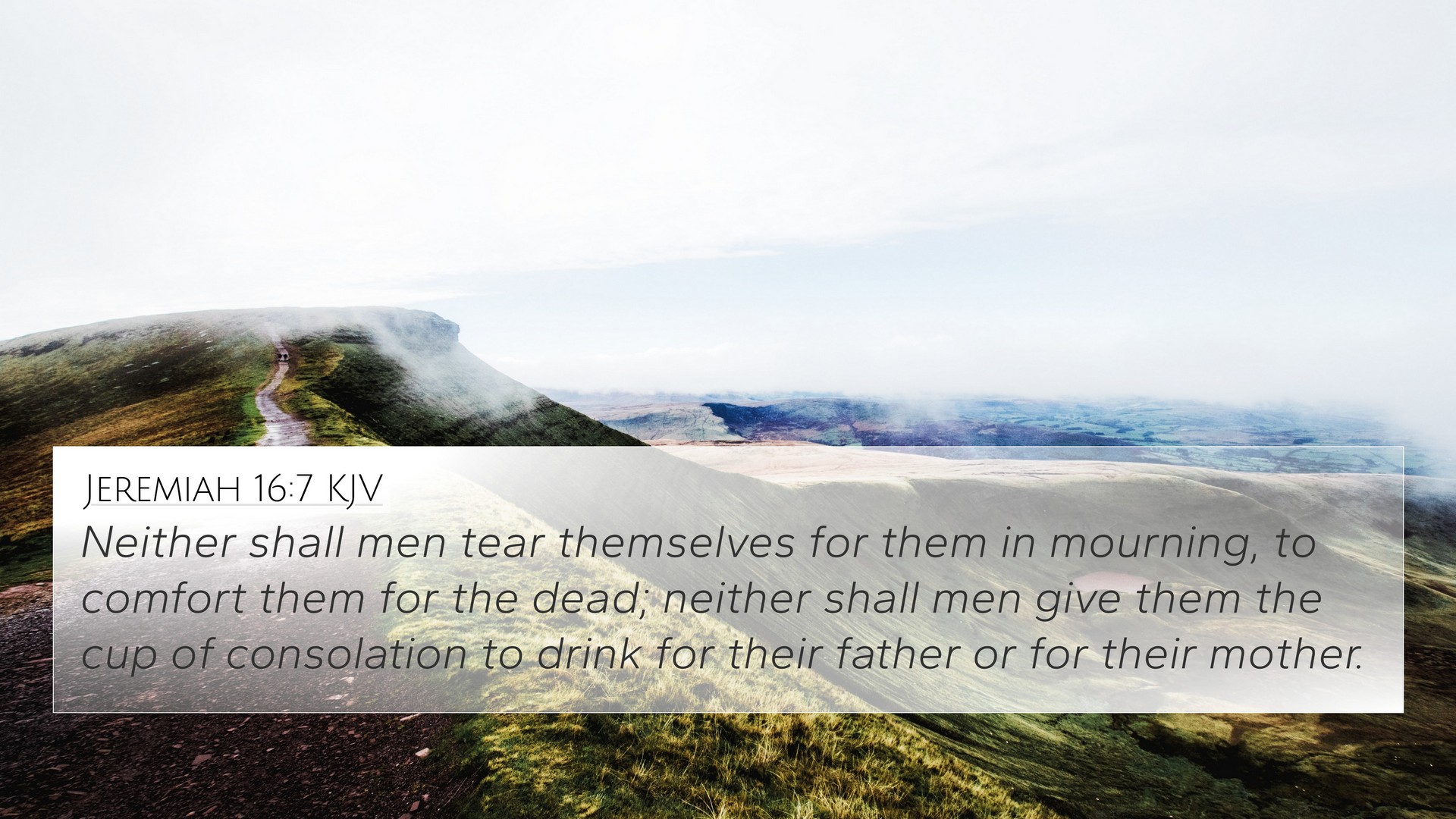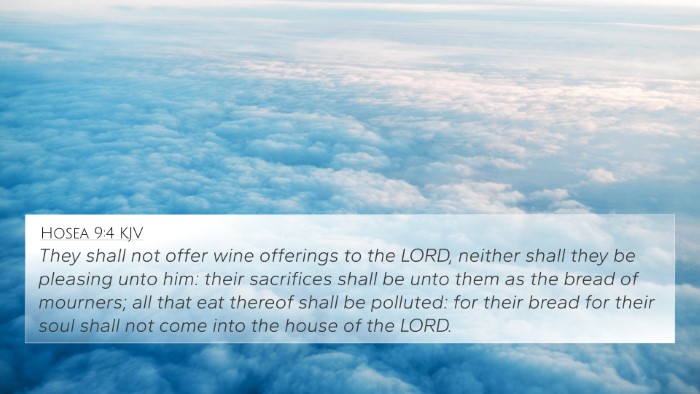Understanding Jeremiah 16:7
Jeremiah 16:7 states, "Neither shall they tear themselves for them, nor make themselves bald for them." This verse has profound meanings, reflecting on mourning practices and divine instruction.
Summary of Meaning
This verse occurs in the context of God's commandment to the prophet Jeremiah regarding the fate of the people of Judah. The Lord was instructing Jeremiah not to participate in typical mourning behaviors that signify deep loss and sorrow for the people who would face calamities due to their disobedience.
Insights from Public Domain Commentaries
-
Matthew Henry:
Henry reflects that this instruction symbolizes the seriousness of the judgment that is about to befall the people. Mourning practices were traditional, but in this context, God calls Jeremiah to refrain from participating in them, indicating the profound nature of the punishment and the need for correction rather than mourning.
-
Albert Barnes:
Barnes emphasizes that the refusal to partake in mourning reveals the complete detachment from the fate of those who are going to perish without true repentance. It illustrates a divine perspective where God sees the necessity of judgment over emotional expressions of loss.
-
Adam Clarke:
Clarke interprets the verse as an indication that true mourning is not exhibited through external signs. Instead, true repentance and alignment with God's will are what prevent impending judgment. The verse serves as a poignant reminder that external actions alone do not signify true remorse.
Thematic Connections
In analyzing Jeremiah 16:7, several themes arise, including:
- The importance of obedience to God.
- The rejection of false mourning or superficial expressions of grief.
- The call for sincere repentance and transformation.
Cross-References Related to Jeremiah 16:7
Understanding this verse can be enriched through cross-referencing other Biblical texts. Here are some key related scriptures:
- Leviticus 21:5: Instructions regarding mourning practices for priests, showing the distinction of holy conduct.
- Ezekiel 24:16-17: God’s command to Ezekiel not to mourn for his wife, displaying a similar emphasis on divine judgment over personal grief.
- Romans 9:1-3: Paul’s longing for the salvation of Israel highlights the emotional weight of disconnect and loss.
- Matthew 5:4: “Blessed are those who mourn,” which contrasts personal mourning within a divine context of blessings through grief over sin.
- John 11:35: Jesus wept, showcasing the genuineness of sorrow compared to forced grief.
- Isaiah 22:12-13: The improper response of the people to disaster, which parallels the instructions in Jeremiah.
- Luke 6:25: The woes pronounced for those who are comforted during times of judgment reflects the theme of sincere emotional responses.
Tools for Bible Cross-Referencing
To better understand the scripture, consider using various tools for cross-referencing:
- Bible concordance for word studies related to mourning.
- Cross-reference Bible study guides for thematic connections.
- Comprehensive Bible cross-reference materials for deeper study.
Inter-Biblical Dialogue
The connection between various verses allows readers to engage in an inter-Biblical dialogue, facilitating:
- Comparative analysis of Old Testament prophecies and New Testament fulfillments.
- Exploration of themes such as repentance and divine justice.
- Identifying links between prophetic writings and Christ’s teachings.
Conclusion
Jeremiah 16:7 serves as a pivotal verse in understanding the weight of sin, the nature of divine judgment, and the appropriate responses to God’s instruction. Through engaging with commentaries and exploring cross-references, one can appreciate the depth and complexity of mourning in relation to divine expectations.







